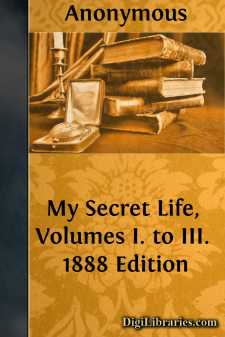Categories
- Antiques & Collectibles 13
- Architecture 36
- Art 48
- Bibles 22
- Biography & Autobiography 813
- Body, Mind & Spirit 142
- Business & Economics 28
- Children's Books 14
- Children's Fiction 11
- Computers 4
- Cooking 94
- Crafts & Hobbies 4
- Drama 346
- Education 46
- Family & Relationships 57
- Fiction 11829
- Games 19
- Gardening 17
- Health & Fitness 34
- History 1377
- House & Home 1
- Humor 147
- Juvenile Fiction 1873
- Juvenile Nonfiction 202
- Language Arts & Disciplines 88
- Law 16
- Literary Collections 686
- Literary Criticism 179
- Mathematics 13
- Medical 41
- Music 40
- Nature 179
- Non-Classifiable 1768
- Performing Arts 7
- Periodicals 1453
- Philosophy 64
- Photography 2
- Poetry 896
- Political Science 203
- Psychology 42
- Reference 154
- Religion 513
- Science 126
- Self-Help 84
- Social Science 81
- Sports & Recreation 34
- Study Aids 3
- Technology & Engineering 59
- Transportation 23
- Travel 463
- True Crime 29
The Pearl Box Containing One Hundred Beautiful Stories for Young People
by: Anonymous
Description:
Excerpt
THE PEARL BOX
THE DYING BOY.
A little boy, by the name of Bertie, was taken very ill, and for sometime continued to grow weaker until he died. A few hours before his death he revived up, and his first request was to be bathed in the river; but his mother persuaded him to be sponged only, as the river water would be too cold for his weak frame. After his mother had sponged him with water, he desired to be dressed; when his mother dressed him in his green coat and white collar, and seated him at the table with all his books and worldly treasures around him. As he sat there, one would have thought that he was about to commence a course of study; and yet in the marble paleness of his features, and in the listless and languid eye, there was evidence that life in the boy was like an expiring taper, flickering in the socket. He soon asked to go out in his little carriage. His grandfather, whom he very much loved, placed him in it, and carefully avoiding every stone, drew him to a spot commanding the entire landscape. The tide was up and the sun was shining on the deep blue waters, and bathing the distant mountains and the green meadows in liquid gold. The gardens and orchards around were gay in the rich crimson blossoms of the apple tree; the air was filled with the sweet fragrance of flowers, and the birds were singing beautifully, when little Bertie looked for the last time on the scenes of earth. He could not remain long, and was soon taken back to the little parlor, where he sat on the sofa, resting his elbows on the table. It was not long before the little boy died. But he was very happy. Among his last words were these, addressed to his little sister three years old: "Well, Emmie, very ill—me going to Jesus."
"Oh, mamma, Emmie loves her Saviour."
A bright eyed boy was sleeping upon a bank of blossoming clover. The cool breeze lifted the curls from his brow, and fanned with downy wings his quiet slumbers, while he lay under the refreshing shade of a large maple tree. The birds sang to him during his happy hours of sleep. By and by he awoke, and a beautiful gold robin sat on the spray, and sung a song of joy. The boy reached out his hands to secure the prize, but the robin spread his golden wings and soared away. He looked after it with a longing gaze, and when it disappeared from his sight, he wept aloud. At this moment, a form of light approached, and took the hands of the child and pointed upwards; and he saw the bird soaring in freedom, and the sun shining upon its burnished plumes. Then the shining one said: "Do you love that beautiful bird?" In the midst of his tears the child replied, "Oh, yes." "Then," said the angel, "shall it not wing its flight from flower to flower and be happy, rather than to dwell in a prison with thee?" Then the streams and flowering vales of Elysium, that breathe the pure air of freedom, spake: "Wouldst thou bring her back to thee, and make her a prisoner? Dry up thy tears, and let thy song be, 'Stay not here, but speed thy flight, O bright one, and snuff the mellow air of freedom.' God made the birds to be happy in their short existence, and ought we to deprive them of their own elements of happiness, and take from them the freedom which they enjoy?"












